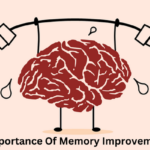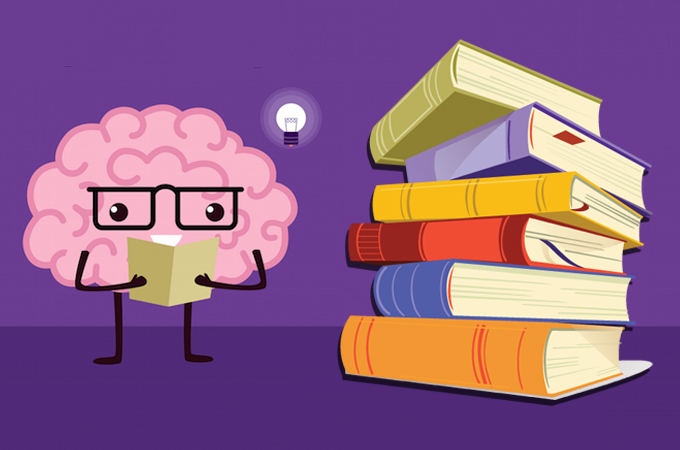Introduction to Memory Improvement: Maximizing Your Brain’s Potential

Welcome to the Introduction to Memory Improvement. Memory is a crucial aspect of our lives, affecting everything from our personal relationships to our careers. Whether you’re a student trying to remember the material for an exam, or an adult trying to recall the name of someone you just met, having a strong memory is essential for success.
However, with the constant distractions of modern life, it’s easy for our memories to get cluttered and for important information to slip through the cracks. That’s why it’s important to take steps to improve your memory and maximize your brain’s potential.
In this blog post, we’ll provide a comprehensive introduction to memory improvement, exploring the basics of how memory works and offering tips and strategies for maximizing your memory potential. Whether you’re just starting out on your memory improvement journey, or you’re looking to take your skills to the next level, this guide will provide you with the information you need to succeed. So, let’s dive in!
How Memory Works
Before we get into the specifics of memory improvement, it’s important to understand how memory works. Our memories are stored in a complex network of neurons in our brains. When we encounter a new piece of information, our brain creates new connections between neurons, allowing us to recall the information later.
However, these connections are not permanent, and over time, they can weaken or disappear. This is why it’s important to repeat information and engage in activities that help strengthen the connections between neurons, such as solving puzzles or reading.
There are different types of memory, including sensory memory, working memory, and long-term memory. Sensory memory is a type of short-term memory that lasts for just a few seconds and is used to process incoming sensory information, such as what you see or hear.
Working memory, also known as short-term memory, is used to temporarily store and manipulate information, such as when you’re solving a math problem or writing down a phone number. Long-term memory, on the other hand, is where information is stored for more extended periods of time, such as memories from childhood or the events of a particular day.
Lifestyle & Habits

Your lifestyle and habits play a big role in determining the health and strength of your memory. Eating a balanced diet that’s rich in nutrients, such as omega-3 fatty acids and B vitamins, can help support brain function and improve memory. Exercise has also been shown to have a positive impact on memory, as it helps increase blood flow to the brain and boost the production of brain-derived neurotrophic factor, a protein that supports the growth of new neurons.
Getting enough sleep is also essential for memory improvement. During sleep, your brain processes and consolidates new information, helping to strengthen the connections between neurons and improve memory recall. Stress management is another critical aspect of memory improvement, as stress can interfere with the brain’s ability to process and store new information.
Techniques & Methods
In addition to lifestyle and habits, there are also specific techniques and methods that can help improve memory. Mnemonics, for example, are memory aids that use associations and rhymes to help you remember information. Mind mapping is another technique that can be useful, as it involves creating visual diagrams to help organize information and make connections between related pieces of information.
Visualization is another powerful memory technique, as it involves creating vivid mental images of the information you’re trying to remember. Chunking, which involves breaking down information into smaller, more manageable pieces, can also be useful for improving memory. Repetition is another technique that can be helpful, as repeating information multiple times can help strengthen the connections between neurons and improve memory recall.
Brain Training Games

Brain training games are another effective way to improve memory. These games are specifically designed to challenge and stimulate the brain, helping to strengthen memory and cognitive skills. There are a variety of brain training games available, including memory games, puzzles, and problem-solving games. Some of the most popular brain training games include Sudoku, crosswords, and memory matching games.
Meditation and mindfulness practices can also be helpful for memory improvement. These practices help reduce stress and increase focus, allowing you to better process and store new information. Additionally, reading and learning new things can also help improve memory, as it engages your brain and strengthens the connections between neurons.
Introduction To Memory Improvement Conclusion
In conclusion, improving your memory is an achievable goal with the right techniques and strategies. By understanding how memory works, adopting healthy lifestyle habits, and engaging in memory-enhancing activities, you can maximize your brain’s potential and improve your memory recall. Remember, the key to successful memory improvement is consistency and repetition, so be sure to incorporate these tips and techniques into your daily routine for best results.
For more in-depth information and tips on memory improvement, be sure to check out our blog “Memory Improvement Tips.” We cover a wide range of topics related to memory improvement, including the latest research, techniques, and strategies for maximizing your brain’s potential. Start your memory improvement journey today and take the first step towards a stronger, more vibrant mind.
Frequently Asked Questions
Q. What are some effective techniques for memory improvement?
A. Some effective techniques for memory improvement include engaging in regular physical exercise, adopting healthy lifestyle habits, playing memory-enhancing games and puzzles, practicing meditation and mindfulness, and continually learning new things.
Q. How important is a healthy lifestyle for memory improvement?
A. A healthy lifestyle is crucial for memory improvement, as it provides the foundation for a strong, well-functioning brain. Adopting healthy habits, such as eating a balanced diet, getting enough sleep, and managing stress, can help improve memory recall and overall brain function.
Q. Can anyone improve their memory, regardless of age or cognitive ability?
A. Yes, anyone can improve their memory, regardless of age or cognitive ability. The key is to consistently engage in activities and habits that enhance brain function and memory recall, such as physical exercise, healthy lifestyle habits, and memory-enhancing games and puzzles. With practice and persistence, anyone can improve their memory and maximize their brain’s potential.



